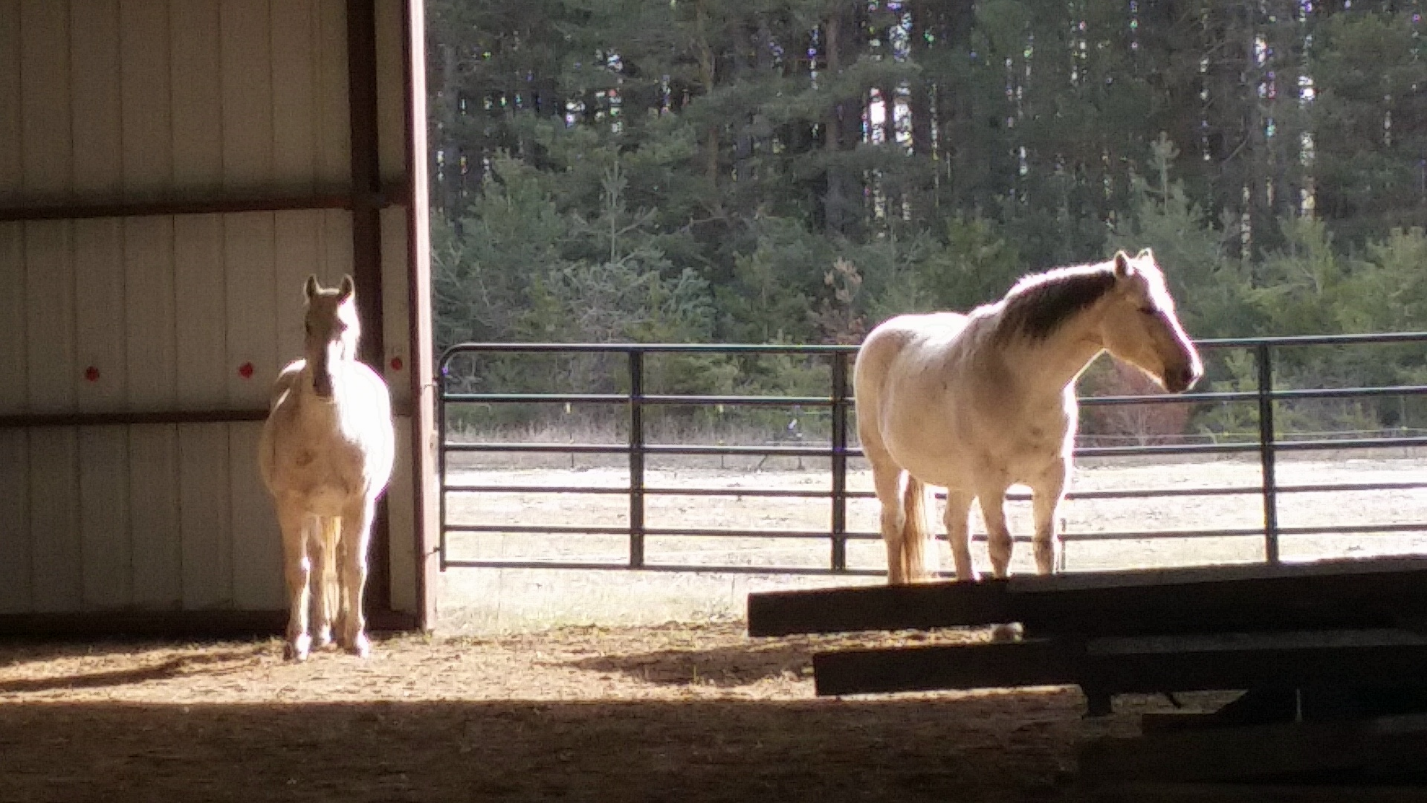Lightening is a beautiful white mustang who enjoys back massages. He loves being around his older brother Lincoln, but shies away from people. Lightening came to Hopewell Ranch in Michigan a few years ago, after barely escaping death. He was abused by his previous family, who disciplined him with a metal two-by-four and cracked his skull. Then they tried to starve him to death. Fortunately for Lightening, he was rescued and became a therapy horse at Hopewell Ranch.
What is equine therapy? Horses like Lightening, with troubled pasts, are used in unique psychotherapy for women and children recovering from domestic violence, cancer patients, veterans, and the list goes on. Equine therapy can also be used for professional development, by teaching the importance of using body language rather than verbalization to elicit responses.
Recently I had the opportunity to visit Hopewell Ranch and participate in one such professional development session. Having never been around horses in my life, I was quite nervous prior to the session. As soon as I stepped in the arena, the horses took notice and the silence between us was powerful, but made me even more nervous. The horses studied my body language, determined that I was not going to harm them, and slowly came over to me. While I was still very cautious, the gentle nature of the horses helped calm my nerves.
After the horses got to know me, I was tasked with identifying some of their personality characteristics based on their reactions to my touch or command. Lincoln, another beautiful Mustang, was clearly the leader of the herd and quite protective of Lightening, who was very nervous and cautious around strangers. Responding to my touch, Lincoln remained steadfast and was no longer nervous around me; however, Lightening continued to shy away from me and recede into the shadow of his brother.
Next, I was placed on a team in order to perform a physical exam on Lincoln, our assigned horse, and finally, we were tasked with getting him to maneuver through a self-made obstacle course. Each task focused on cultivating different skills, such as learning to read body language, working in a team, and leading. Physicians are often required to read a patient within the first 30 seconds of entering the exam room. They must be able to work well in a team and step back when necessary so others can get the job done. A physician must also exude confidence as a leader so a patient has confidence in him or her; equine therapy helps integrate all of these important physician skills.
The most powerful part of this session for me was, again, the silence. Many times, we take speech for granted and believe that because patients can verbalize their thoughts and feelings, they will tell us everything we want to know. However, working with these horses, particularly Lightening, revealed to me the necessity of gaining the trust of my patients. If there isn’t a trusting patient-doctor relationship, they will not feel comfortable sharing their life circumstances or the challenges that need to be overcome to successfully implement therapy. For example, a patient may be homeless, abused, or depressed, but there may not be outward signs at first glance. Learning to read a patient and being able to get him or her comfortable enough to share information are great assets to have in the physician tool belt, because they will help make accurate diagnoses and enable successful treatment.
Beyond professional development, equine therapy is an incredible resource for an array of psychotherapy candidates including, but not limited to, addicts and the handicapped. The founder of Hopewell Ranch, Jodi Stuber, has an incredible story of her own that led her to open this ranch. She lost her daughter at five months in utero, but named her Hope, and then decided to name the ranch after her. In Hope’s memory, Jodi has helped people fight drug addiction, has helped cancer victims learn to ride and experience joy while they endure intensive chemotherapy, and has helped children faced with abuse and disabilities feel empowered, all through the teachings of horsemanship.
Equine therapy is a lesser known, but phenomenal, therapeutic method, and my first experience with Lincoln and Lightening will definitely not be my last. I encourage everyone to seek out equine therapy – for fun, for mental health, and for professional growth and development.
Learn more about Hopewell Ranch in Weidman, MI.
Featured image:
Picture taken by author at Hopewell Ranch. Lightening (left) and Lincoln (right)

